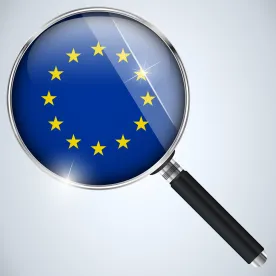Last week, the European Data Protection Supervisor (the “EDPS”), in collaboration with European consumer organisation BEUC, hosted a joint conference on Big Data: individual rights and smart enforcement in Brussels (for the conference agenda, see here). The conference brought together leading regulators and experts in the areas of competition, data protection and consumer protection, including representatives of several data protection authorities and consumer associations as well as academics.
The objective of the conference was to promote closer dialogue and cooperation and to explore how to respond to the challenges brought about by big data. The conference included panels on big data, data-driven platforms, smart technologies and enforcement.
EU Commissioner for Competition Margrethe Vestager and Federal Trade Commissioner Terrell McSweeny were the keynote speakers. Both welcomed the dialogue and the idea of a digital clearing house which the EDPS promotes in his recent opinion on big data. However, whilst recognizing that there are certain commonalities between data protection and competition law, they also highlighted the differences. Vestager in particular stressed that the mere fact of having huge amounts of data is not anti-competitive and that data sharing and pooling may even be beneficial for competition. McSweeny stated that merger proceedings should not be used to extract privacy concessions from companies and that privacy aspects should rather be dealt with by the data protection regulators. Although competition rules were not written with big data in mind, it would be possible to deal with big data cases by applying renowned competition law principles. However, in order to ensure effective enforcement Vestager announced that the European Commission may issue a proposal strengthening the powers of the competition authorities and providing new tools as early as spring next year. Moreover, the European Commission is also exploring whether mergers with valuable data should be subject to merger control rules even if the data is not yet monetized.



 />i
/>i

